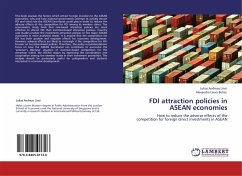
Neoliberal Cycles and Solidarity Economies in Argentina and Japan
Versandkostenfrei!
Versandfertig in 6-10 Tagen
43,99 €
inkl. MwSt.

PAYBACK Punkte
22 °P sammeln!
Neoliberal programs and reforms have been implemented in both and Argentina and Japan with the belief that its policies would bring greater economic efficiency. This has not been the case as the imposition of neoliberal policies has led to the creation of particular business cycles, named neoliberal cycles, which have resulted in ever deeper economic, political and/or social crises characterized by growing unemployment, worsening labor conditions, a widening income gap, increase in poverty levels, etc. As a result, in both countries this has led to the establishment of solidarity economies whi...
Neoliberal programs and reforms have been implemented in both and Argentina and Japan with the belief that its policies would bring greater economic efficiency. This has not been the case as the imposition of neoliberal policies has led to the creation of particular business cycles, named neoliberal cycles, which have resulted in ever deeper economic, political and/or social crises characterized by growing unemployment, worsening labor conditions, a widening income gap, increase in poverty levels, etc. As a result, in both countries this has led to the establishment of solidarity economies which are cooperative grassroots movements formed by those people most affected and marginalized by the implementation of such neoliberal reforms.












